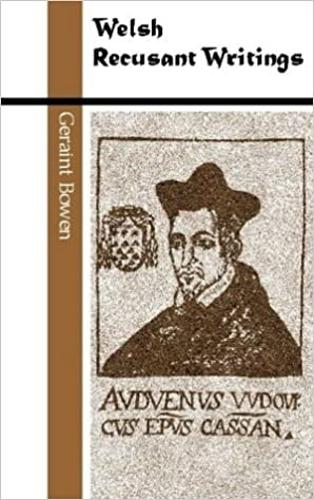
Welsh Recusant Writings
(Paperback)
Publishing Details
Welsh Recusant Writings
By (Author) Geraint Bowen
University of Wales Press
University of Wales Press
27th May 1999
United Kingdom
Classifications
Tertiary Education
Non Fiction
European history
891.660938282
Physical Properties
Paperback
120
Width 135mm, Height 216mm
177g
Description
The word recusant was originally used to describe those Catholics whose names were entered on registers because of their refusal to attend Anglican services during the reign of Elizabeth I, but the term 'recusant writings' covers writing by Catholics, whether open or covert. For over a hundred years after the accession of Elizabeth in 1588, the publication of Catholic books was prohibited by law. Nevertheless, during that period the registered recusants, others who had avoided registration and, most notably, the Welsh Catholic emigres made a substantial contribution to Welsh scholarship. Welsh recusant writing, published abroad, on secret presses at home, or, as was most often the case, remaining in manuscript, was not confined to works of Catholic devotion and dogma. The Tudor period witnessed important developments in Welsh scholarship and literature, and the first contributions to this development were made by exiled Catholics. The enforced residence abroad, particularly in Italy, of men like Morys Clynnog, Gruffydd Robert, Sion Dafydd Rhys and Owen Lewis gave them access to the learning of the Renaissance and to the knowledge and enthusiasm of its most notable exponents. The humanist belief that the vernacular could be elevated to the status and dignity of the classical languages led the exiles to attempt to achieve that standing for their native tongue, Welsh, and the consequences were far-reaching. Geraint Bowen's book is the fruit of many years of research and is the first to be published on writing by Welsh recusants.
Reviews
'This short book in the Writers of Wales series deserves the attention of recusant scholars everywhere.' Recusant History
Author Bio
Geraint Bowen lives in Caernarfon. He is now retired. He has published many books in the medium of Welsh as well as having several articles in Welsh journals.
